Do you need to refrigerate eggs?
If you’re new to chicken keeping and farm fresh eggs, you may be wondering how to store them. And do you need to refrigerate eggs ?
The short answer is sometimes yes and sometimes no. And I’ll explain a few different approaches towards safely storing eggs. And reasons for why you’ll need to refrigerate your eggs.
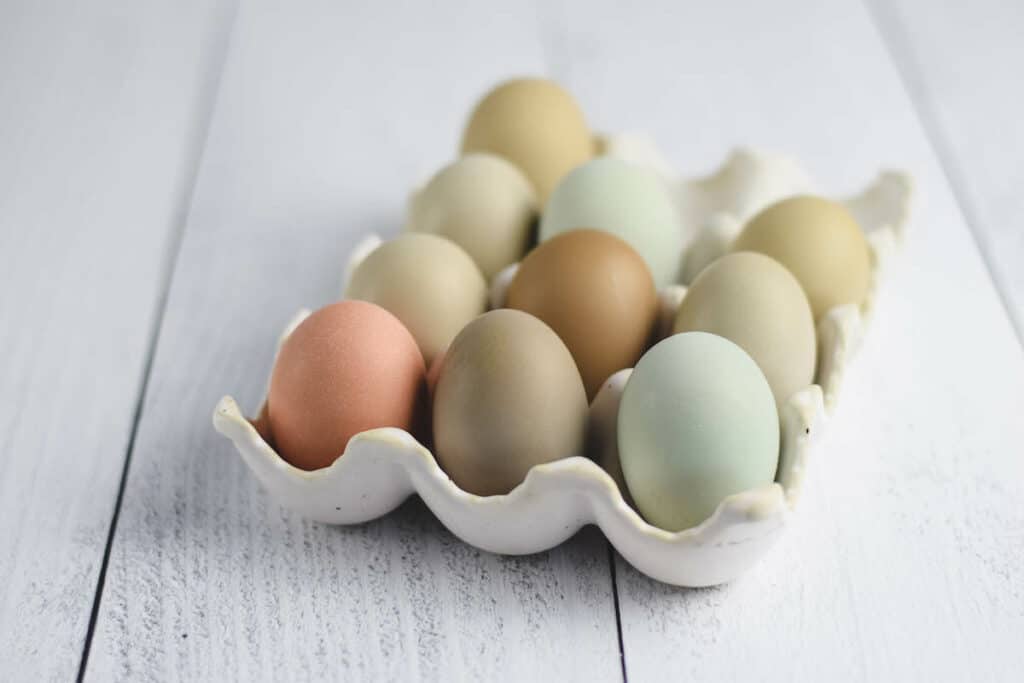
This post has been updated from its original publish date of May 5, 2017.
Do you need to refrigerate eggs?
This seems to be a common question that I’m asked. Especially on social media.
We raise chickens, ducks, and guineas which provide us with plenty of farm fresh eggs.
After collecting eggs, I don’t even wash them until right before I am ready to use them. And only if they absolutely need it! Usually, I keep them stored in an egg skelter in the pantry – which helps me to track shelf life of each egg.
And others are stored on a ceramic egg tray on the countertop for ease when baking. If you’re using them often, you could even store them in a large bowl on the counter.
In many European countries (among others), they do not refrigerate their farm fresh eggs. It’s in the US that this has become the standard.
And some of the reason behind it is because the USDA requires commercially sold American eggs to be washed and sterilized to prevent the spread of salmonella and bacterial contamination.
However, if you’re raising your own chickens, you won’t need to go to this level. But with a few simple steps, you can keep those room-temperature eggs without the risk of illness or growth of bacteria.
How to keep a fresh egg stored safely
Fresh laid eggs have a protective layer called a bloom or cuticle which coats the surface of the egg. This bloom seals the egg and helps to prevent bacteria from entering the very porous shell.
Washing eggs would remove the bloom and thus allow for bacteria to enter.
I don’t fear or worry about my eggs being stored on the counter since that protective bloom is keeping the bacteria away.
And I totally dig the look of those farm fresh eggs being stored on my counter in our little farmhouse.
Now, you can store your eggs in the fridge if you prefer. But I don’t worry about keeping fresh eggs at room temperature.
However, if the eggshells have dirt, hay stuck on them, or ahem..poop, then of course, I would wash them and store them inside of the refrigerator. Usually inside of an egg carton to prevent breakage.
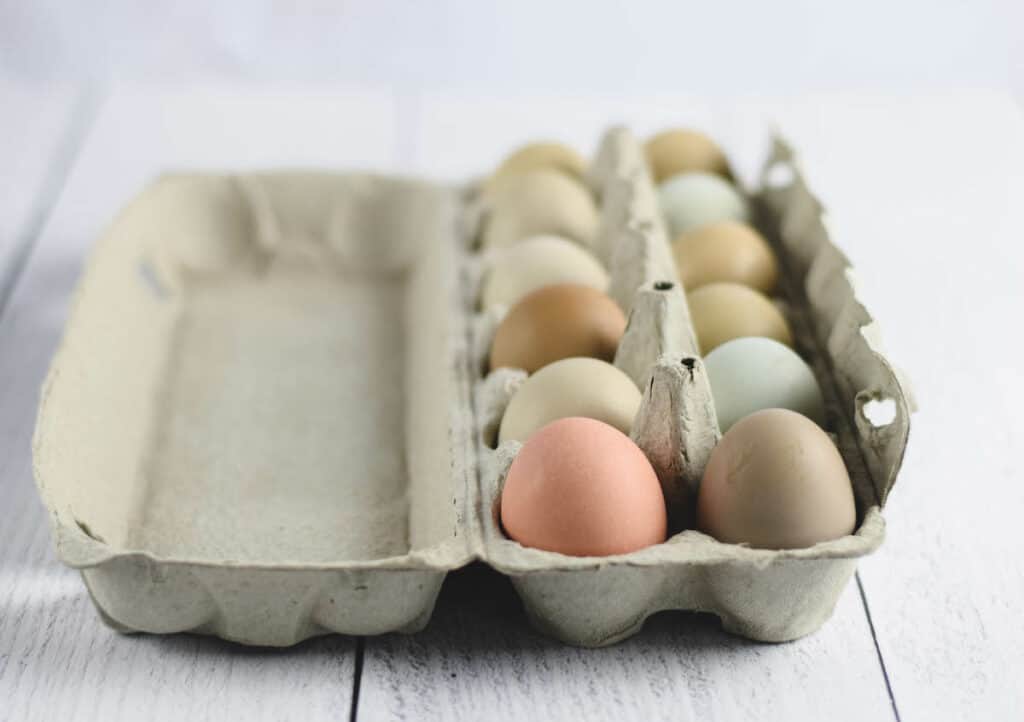
Refrigerating eggs
Once eggs have been washed and the bloom has been removed, they need to be refrigerated. All commercial eggs need to be washed before being sold.
Want to save this?
What is an egg bloom? It is the protective natural coating that creates a vacuum seal. This helps prevent bacteria from getting inside the shell. And this protective bloom also helps prevent moisture loss from the egg.
The bloom is also to protect potential baby chicks from bacteria during the critical growing stage, giving them a nice clean space.
If an egg has previously been refrigerated, it needs to remain refrigerated. When you buy eggs at the grocery store, they come washed, sterilized, and refrigerated.
Egg washing
If you choose to wash your eggs before storing them, you’ll want to ensure that you are doing it in hot running water. The hot water causes the egg to expand inside of the shell, which helps prevent bad bacteria from entering.
Take the soiled egg and wipe any yucky spots while running the hot water. And there is no need to use soap, bleach, or vinegar.
My personal method is to avoid washing farm fresh eggs unless they absolutely need it. I don’t even wash my eggs before cooking them unless they are dirty or soiled with feces. Um, yuck.
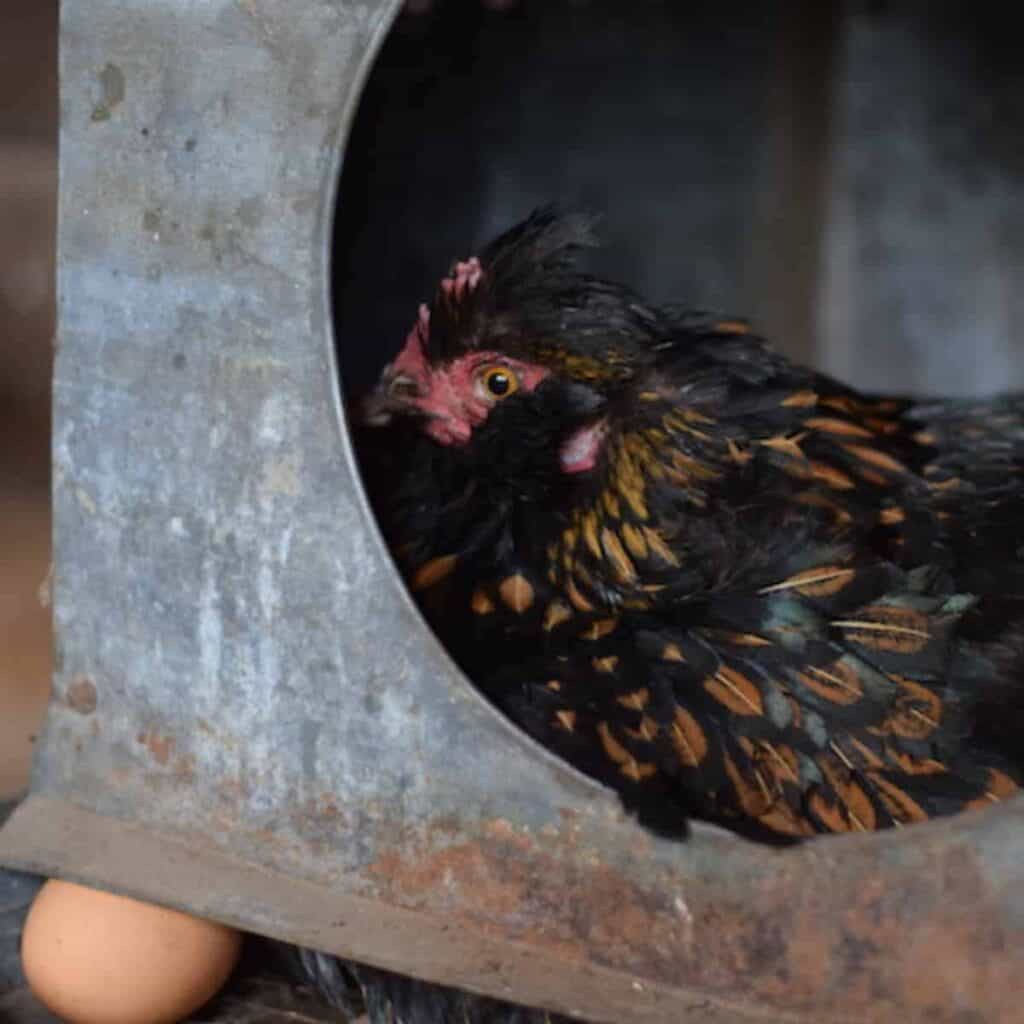
Collecting and storing farm fresh eggs
My toddlers and I use this nifty little basket to collect eggs. And then it’s stored on our egg skelter right on our counter top.
The white basket that I have pictured above is from Target, but I don’t see it on their website anymore. Here is another similar option.
Around here, we eat a lot of eggs. But if for some reason, we couldn’t get through them fast enough, we would move them to a refrigerator for longer storage.
Say, if it was longer than a week. And according to this, they technically have about 3 weeks for safe keeping before moving to cold storage.
But that is just my personal preference. We want to ensure that we are also practicing good food safety! Temperature also plays a little role in all of this.
One final tip
Raising hens for farm fresh eggs is such a fun experience. And something that is essential to the safety of both your family and your poultry is cleanliness.
Keeping the coop cleaned regularly will ensure that you’re reducing the risk of bacteria or other illness from spreading.

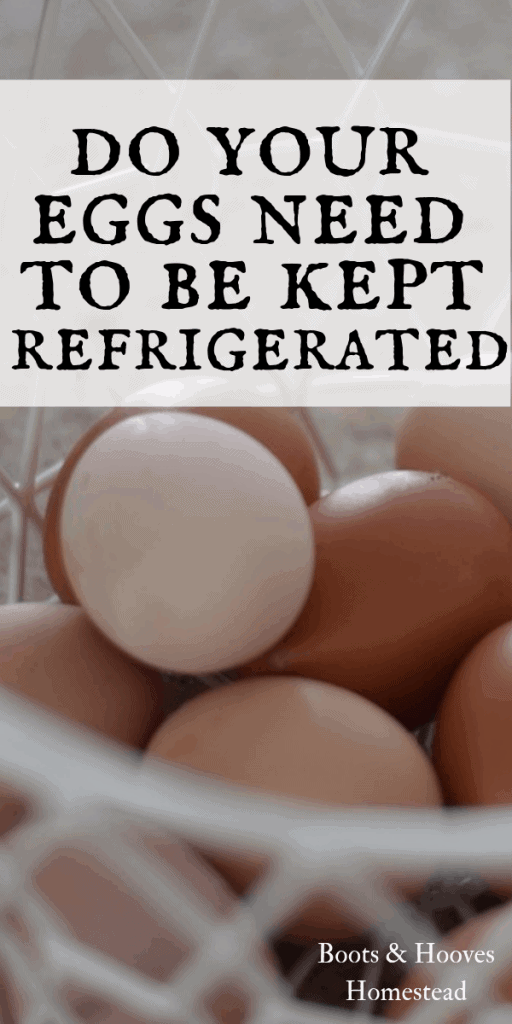
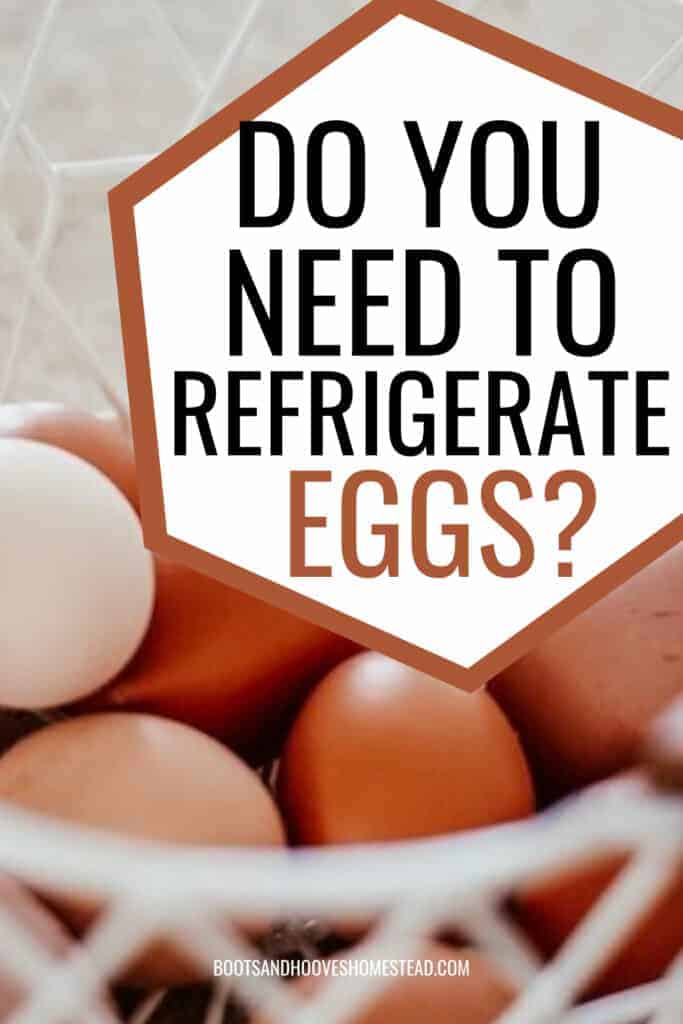
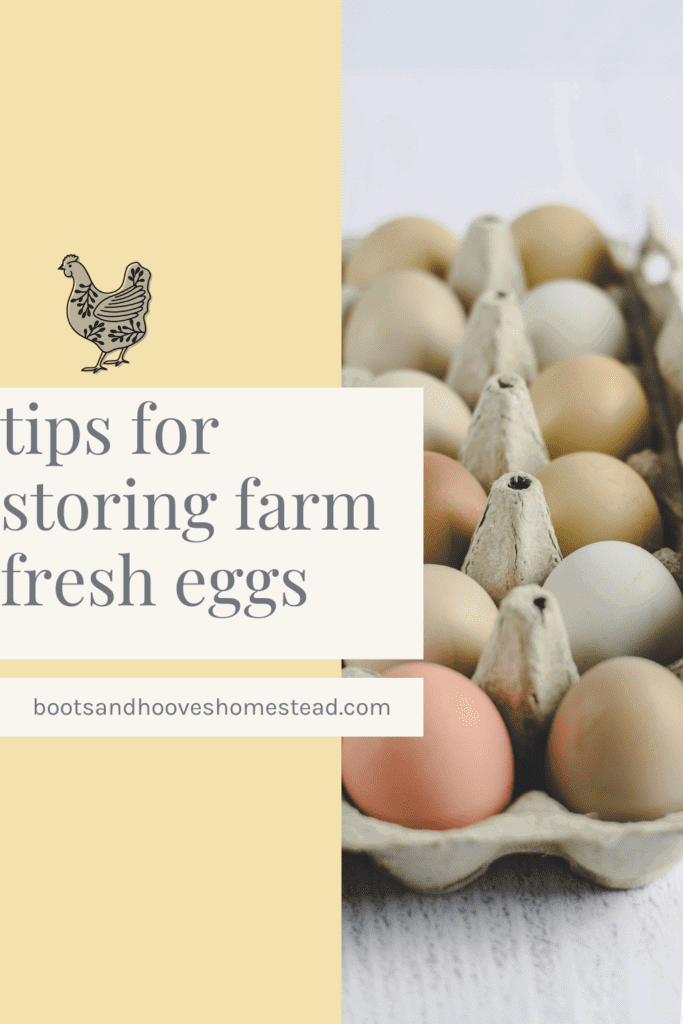




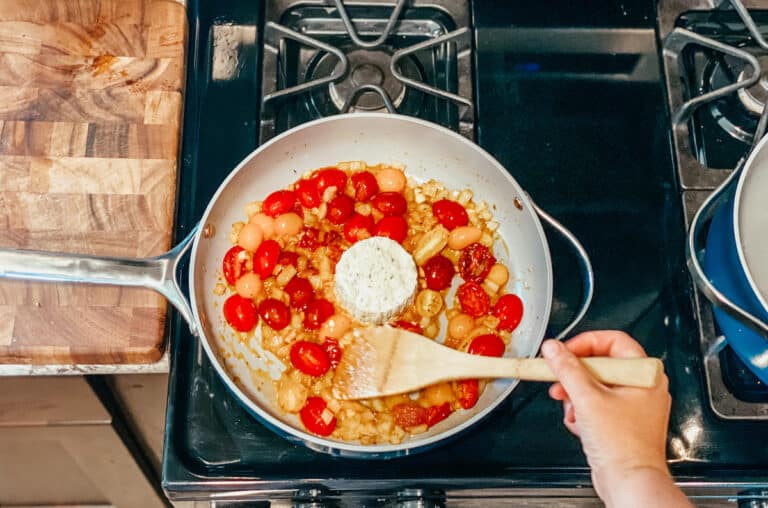
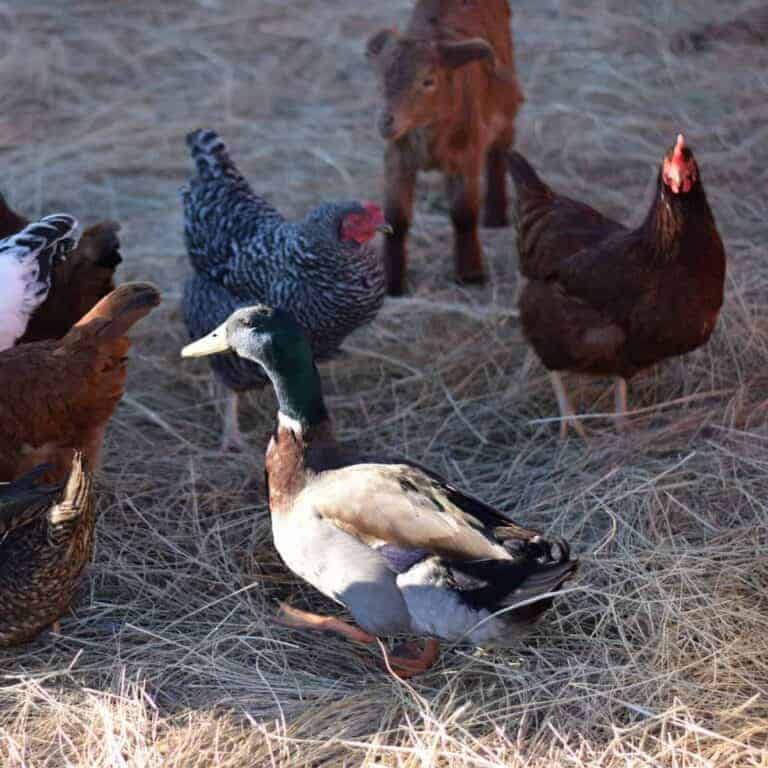
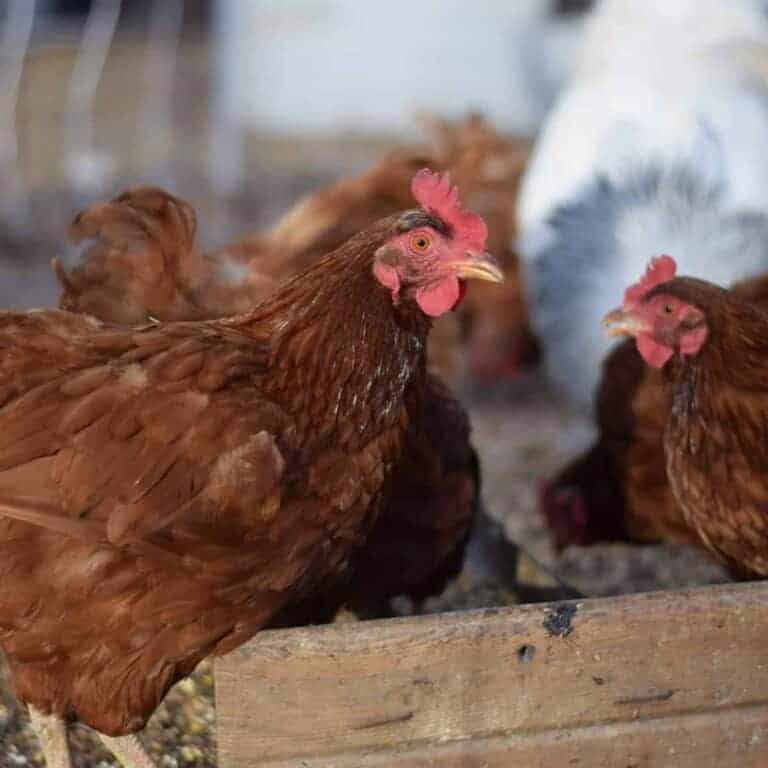
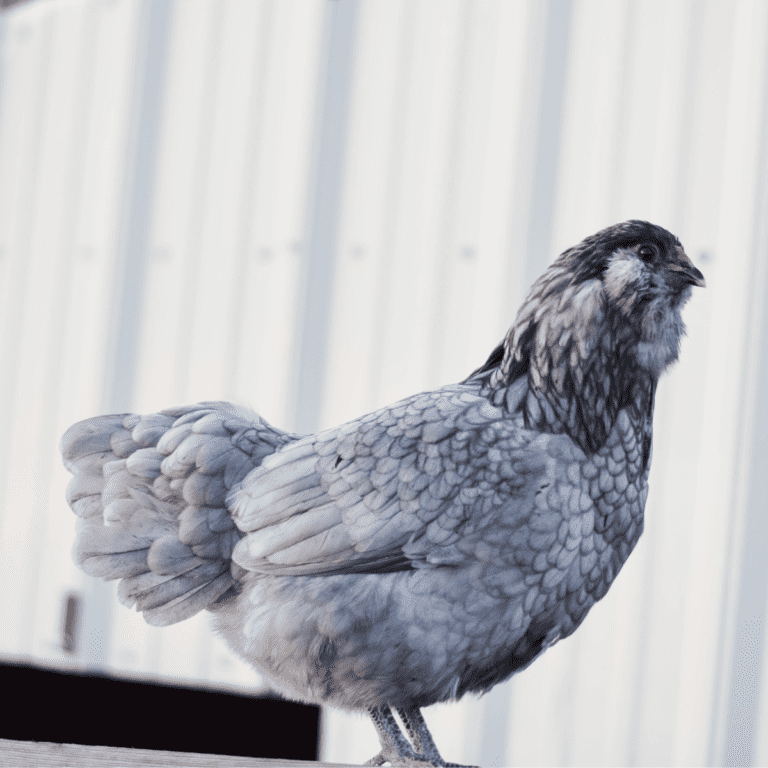
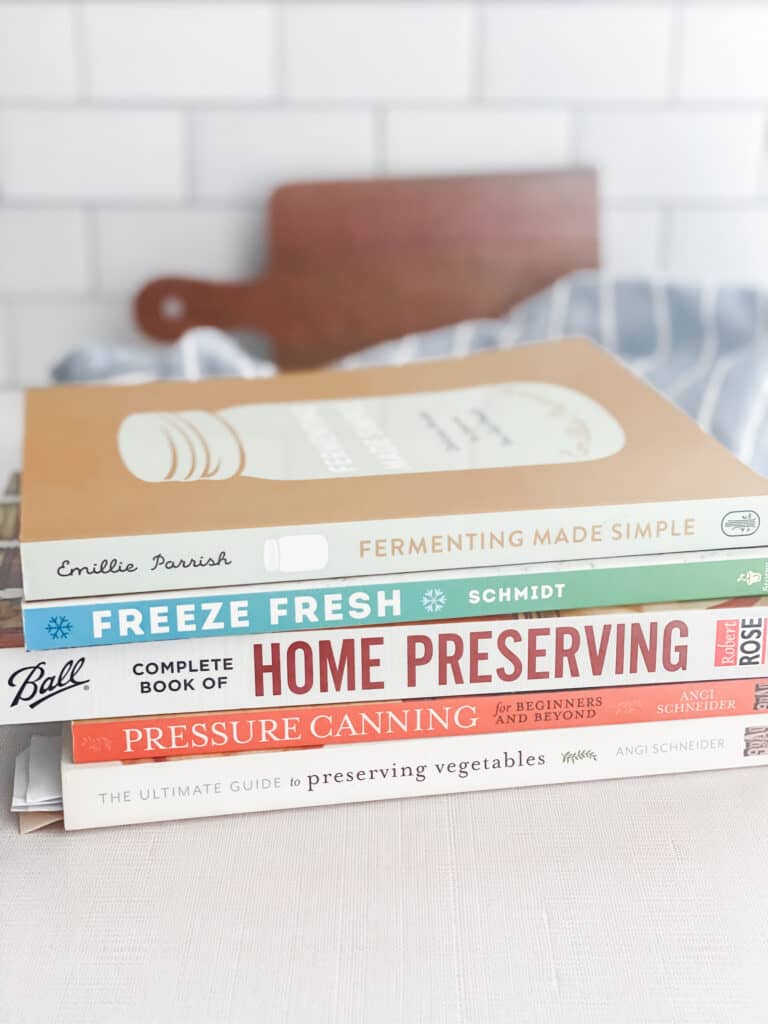

Surely it depends on the climate. If you live in a rargely hot climate surely eggs must be refrigerated.
Yes, that’s true. Higher temps will increase the risk of salmonella. I have this link in the post which covers that if you’d like more info. 🙂 https://www.ncbi.nlm.nih.gov/pubmed/8405149
Thanks for reading! 🙂
In South and Central America eggs are sold unrefrigerated and unwashed. I never encountered refrigerated eggs until we moved to a cooler locale (Hawaii), and had never heard of salmonella from eggs before living in North America.
Isn’t that crazy?
Thank you for this information! Very clear and easy to understand.
Does it make any difference if the eggs might be fertilized? We have 17 hens and 1 rooster – so on average about 1/3rd of the eggs are fertilized. I tend to eat them or give them away quickly so do not refrigerate the nice clean, unwashed ones. Is that ok?
Yes, totally fine. 🙂
You explained it better than I could but you are pretty much spot on. Bring em in, wipe if necessary. Put em in the basket on the counter. Rinse if needed when using.
Thank you! 🙂